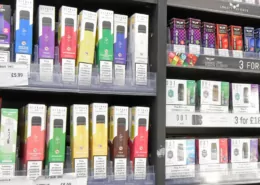Vape and Travel? These Countries Could Land You in Jail
Thinking of packing your vape for your next international trip? You might want to reconsider. While vaping might be commonplace in places like Luxembourg or parts of the US, the legal landscape globally is a complex patchwork. Many popular tourist destinations have implemented strict anti-vaping laws, ranging from hefty fines to, in some cases, actual prison sentences. Ignorance of these laws won’t protect you, and what’s perfectly legal at home could lead to serious trouble abroad.
Countries enact these bans for various reasons, often citing public health concerns, rising youth usage rates, or aligning with international tobacco control recommendations. Whatever the rationale, the consequences for unsuspecting travelers can be severe. Before you fly, understanding the specific regulations of your destination is absolutely essential. This guide provides an overview of some countries known for their particularly strict stance on e-cigarettes as of April 2025.
High-Risk Destinations: Countries with Severe Penalties
In these locations, being caught with a vape can lead to more than just a confiscated device. Significant fines and potential jail time are real risks.
Thailand: Strict Ban, Steep Fines, and Potential Imprisonment
Thailand implemented a comprehensive ban on importing, selling, and possessing all types of e-cigarettes back in 2014. This applies equally to locals and tourists. Enforcement can be strict, and penalties are harsh. Anyone caught vaping in public or possessing a device could face a fine of up to ฿30,000 THB (Thai Baht), which translates to a substantial amount, potentially equivalent to thousands of US dollars depending on the specific circumstances cited by authorities, or worse – imprisonment for up to one year in some interpretations or enforcement scenarios of the law.

Mauritius: Import/Use Prohibited with Serious Consequences
This popular island nation in the Indian Ocean strictly prohibits the importation, manufacture, sale, and use of e-cigarettes. The German Federal Foreign Office (EDA), among other government travel advisories, explicitly warns citizens about these rules, stating that “Violations are subject to heavy fines or imprisonment.” Travelers should heed these official warnings and leave all vape products behind.

Singapore: Zero Tolerance in a Highly Regulated Nation
Singapore is renowned for its strict laws and regulations on various activities – its long-standing ban on chewing gum is a famous example. Unsurprisingly, e-cigarettes fall under this stringent approach. The importation, sale, possession, and use of vapes are illegal. Reports indicate police actively monitor public spaces, including clubs and bars, for violations. Being caught can result in significant fines, potentially up to SGD $2,000 (Singapore Dollars, roughly $1,400-$1,500 USD). The government maintains a zero-tolerance policy and even encourages the public to report suspected violations.

Maldives: Import Ban, Confiscation Guaranteed (with a Nuance)
An official import ban on e-cigarettes has been in effect in the Maldives since late 2024. The law also prohibits possession, use, manufacture, sale, and advertising, with potential penalties including heavy fines or imprisonment. However, there’s a slight nuance reported by the Maldives Tourism Organization aimed at travelers: while importing vapes is illegal and devices will be confiscated by customs upon arrival, tourists might not face further penalties like fines or entry denial solely for attempted personal import. The confiscated items are reportedly held and returned upon departure. Despite this practical leniency suggested by the tourism board, travelers should be aware that importing remains illegal, and relying on discretionary enforcement carries risks. Confiscation is virtually guaranteed.

Growing Restrictions: Other Regions to Watch
While perhaps not carrying immediate jail sentences for simple possession in all cases, these regions also have significant restrictions travelers need to know.
Hong Kong: Towards a Full Ban
Hong Kong already regulates the manufacture, import, sale, and advertising of vaping products. However, the government intends to implement a complete ban, including prohibiting the personal possession and use of vapes. This stricter law is currently planned to take effect by mid-2026. Travelers planning future trips should monitor this development closely.

South America (Brazil, Argentina, Mexico): Import Prohibitions Common
Several major South American countries also maintain strict controls. Brazil and Argentina have bans related to the sale and import of e-cigarettes. As detailed in other guides, Mexico has a comprehensive ban on the import, sale, and distribution of all vaping products, enforced through customs checks (sometimes random) and recently reinforced by constitutional amendments. Attempting to bring vapes into these countries is illegal and risks confiscation and fines.

Europe: Fewer Jail Risks, But Restrictions Apply
While imprisonment for simple vaping is highly unlikely in Europe, travelers shouldn’t assume it’s a free-for-all. Restrictions are common and increasing:
Public Space Bans
Many European countries and cities restrict vaping in public spaces, similar to smoking bans. Popular tourist destinations in Spain and France, for instance, have banned smoking and vaping on numerous beaches and in public parks, with fines possible for violations. Always look for signage and be mindful of local ordinances.
Disposable Vape Bans
Single-use, disposable vapes are facing particular scrutiny due to environmental and youth access concerns. Belgium and France have already implemented bans on their sale. The United Kingdom is moving forward with a ban on disposable vapes, expected to take effect starting in June 2025. More countries may follow suit.
Essential Advice for Traveling Vapers
Given the wide variance and potential severity of anti-vaping laws globally:
- Research Before You Go: Always check the current laws for your specific destination and any transit countries. Consult official sources like the destination country’s embassy or consulate website in your home country, or your own government’s official travel advisories. Regulations can change rapidly.
- When in Doubt, Leave It Out: For destinations with known bans or unclear regulations, the safest course of action is to leave all vaping devices, liquids, and accessories at home. This eliminates any risk of confiscation, fines, or more severe penalties.
- Don’t Try to Hide It: Airport security scanners can often detect e-cigarettes and batteries in luggage. Trying to smuggle prohibited items is unwise and can lead to immediate confiscation and potential legal trouble upon arrival.
- Understand Battery Rules: Even if vaping is allowed, be aware of airline regulations regarding lithium batteries found in vape devices (usually must be in carry-on, not checked luggage).
- Consider Alternatives: If you rely on nicotine, consider packing legally permissible alternatives like nicotine gum or patches for your trip.
Conclusion: Ignorance is Not Bliss – Prioritize a Safe Trip
While vaping may be part of your daily routine, it’s crucial to remember that vape laws vary drastically worldwide. What’s acceptable at home could result in serious consequences abroad, including hefty fines or even jail time in some countries. Don’t let a vape pen derail your vacation. Do your research, understand the risks, and when traveling to destinations with strict regulations, make the safe choice: leave your vape at home.
- Is It Illegal to Vape or Smoke While Driving in Minnesota? - August 15, 2025
- American Airlines Vaping Passenger Alleges Assault in Police Report - August 15, 2025
- NEXA PIX 35K Disposable Vape with Crystal Tank Review - August 15, 2025








